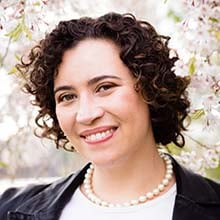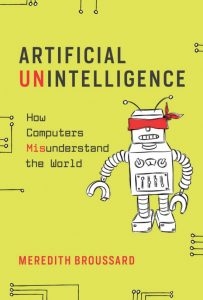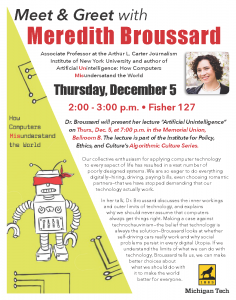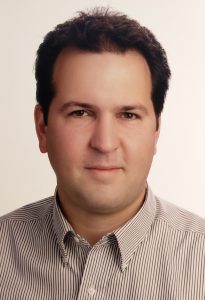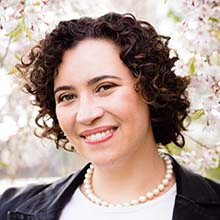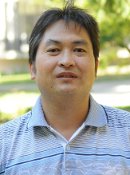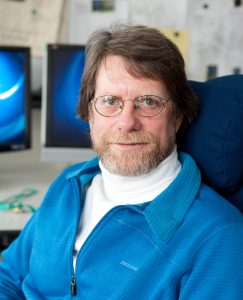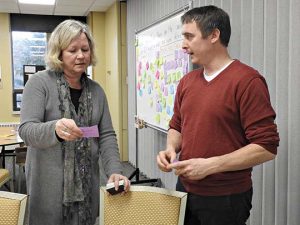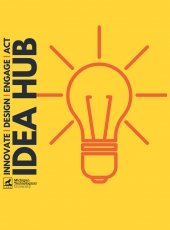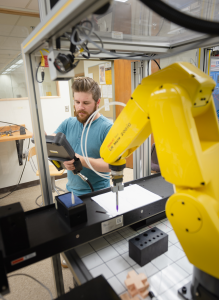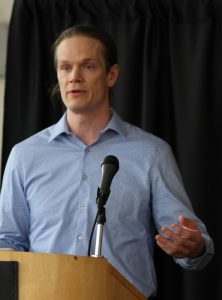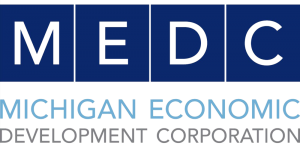
Michigan Tech’s ICC Center for Cybersecurity and the MTEC SmartZone hosted members of the Michigan Economic Development Corporation’s (MEDC’s) Cyber and Mobility division in Houghton, MI, on December 2, 2019.
The group’s visit included presentations by several Michigan Tech faculty who are conducting research in the cyber and mobility space, strategic economic development discussions highlighting Michigan Tech and the local community, and tours of selected Michigan Tech cyber and mobility labs, including GLRC, APS Labs, and the KRC.
The tour concluded with a talk to Michigan Tech students by Karl Heimer of the MEDC regarding information and student opportunities with MEDC-affiliated CyberAuto and CyberTruck competitions.
For more information, contact Associate Professor Guy Hembroff, director of the ICC Center for Cybersecurity and the Health Informatics graduate program.
